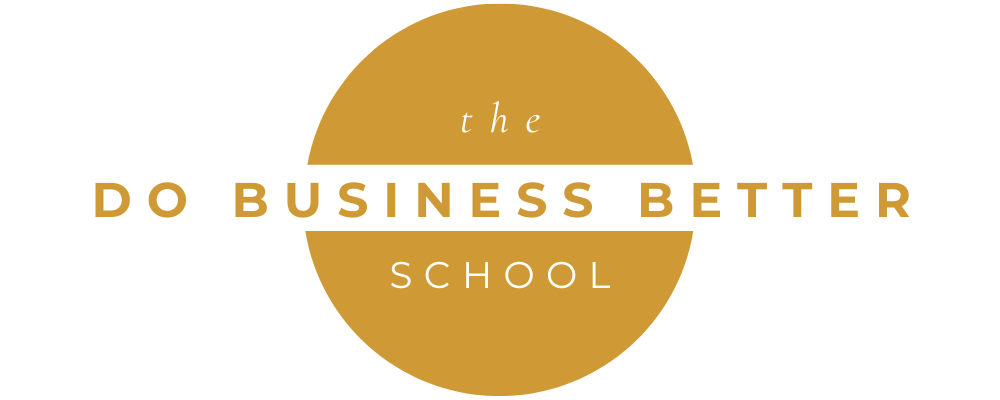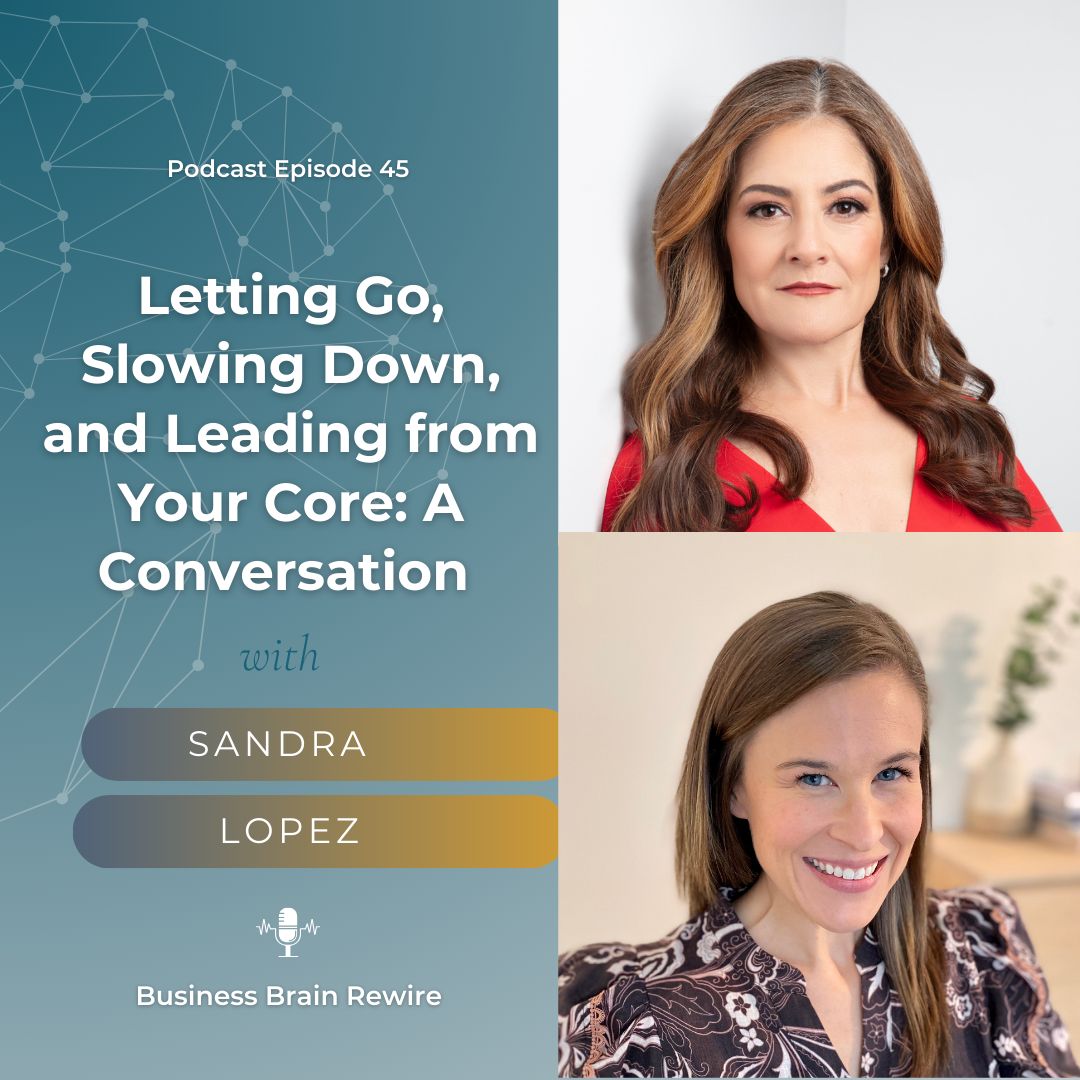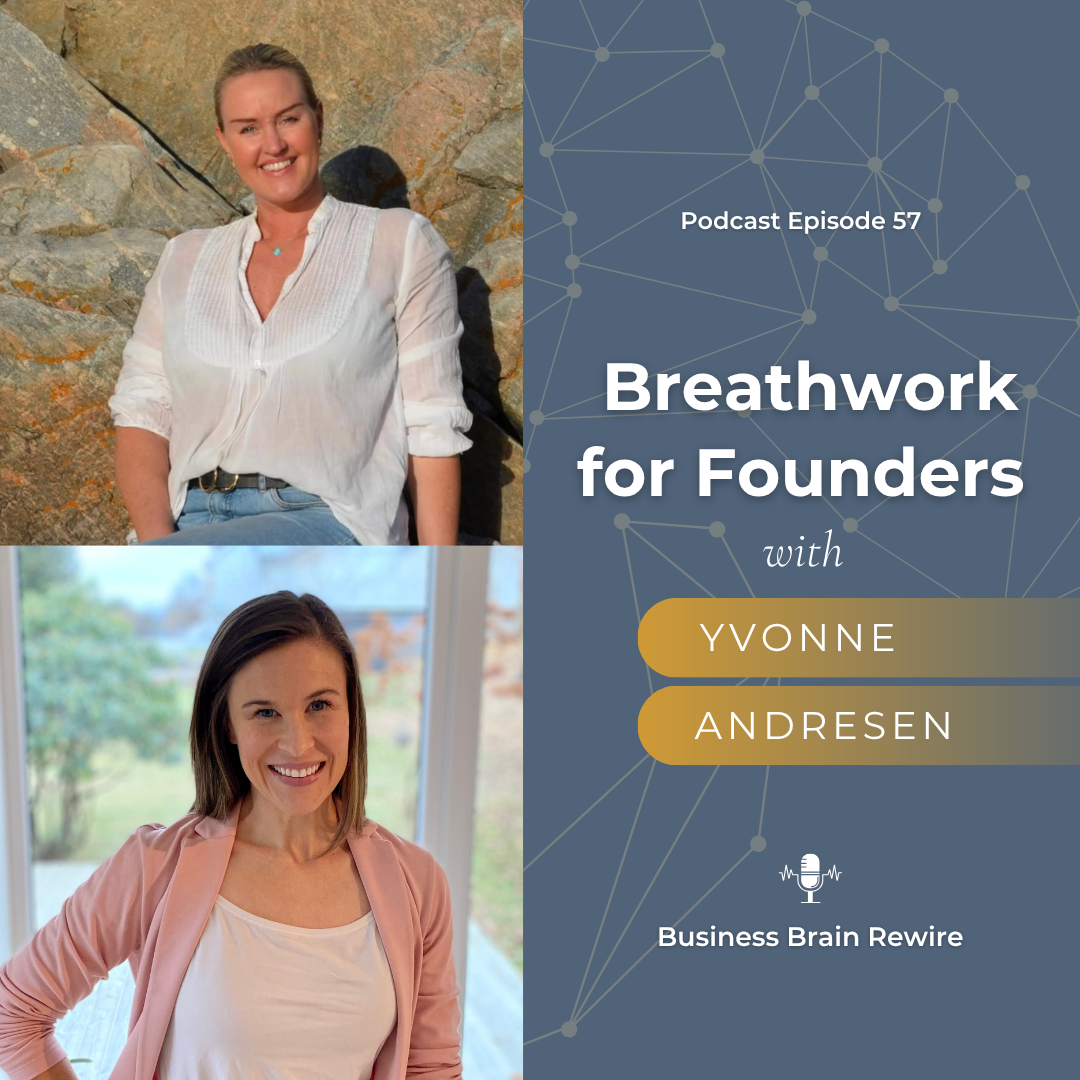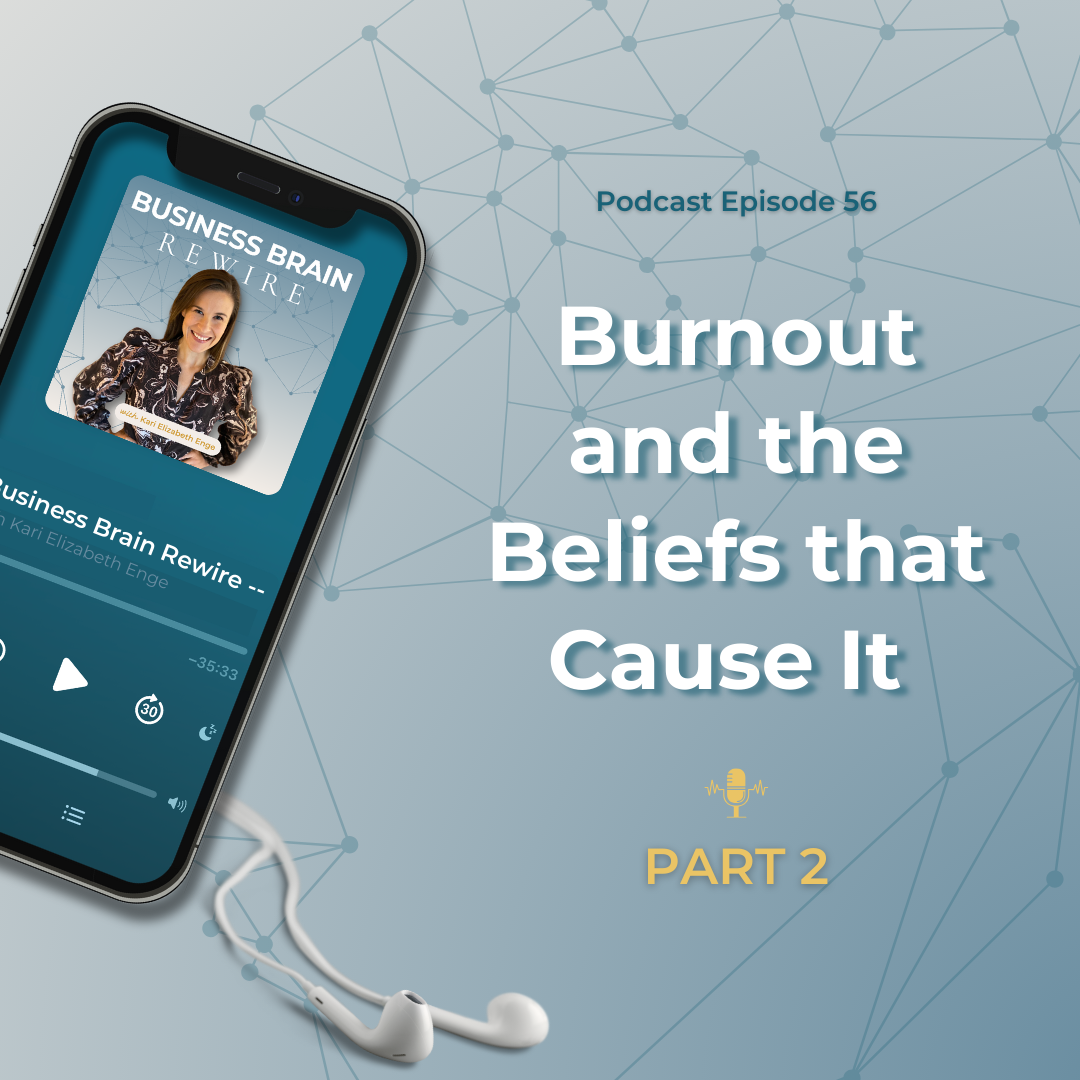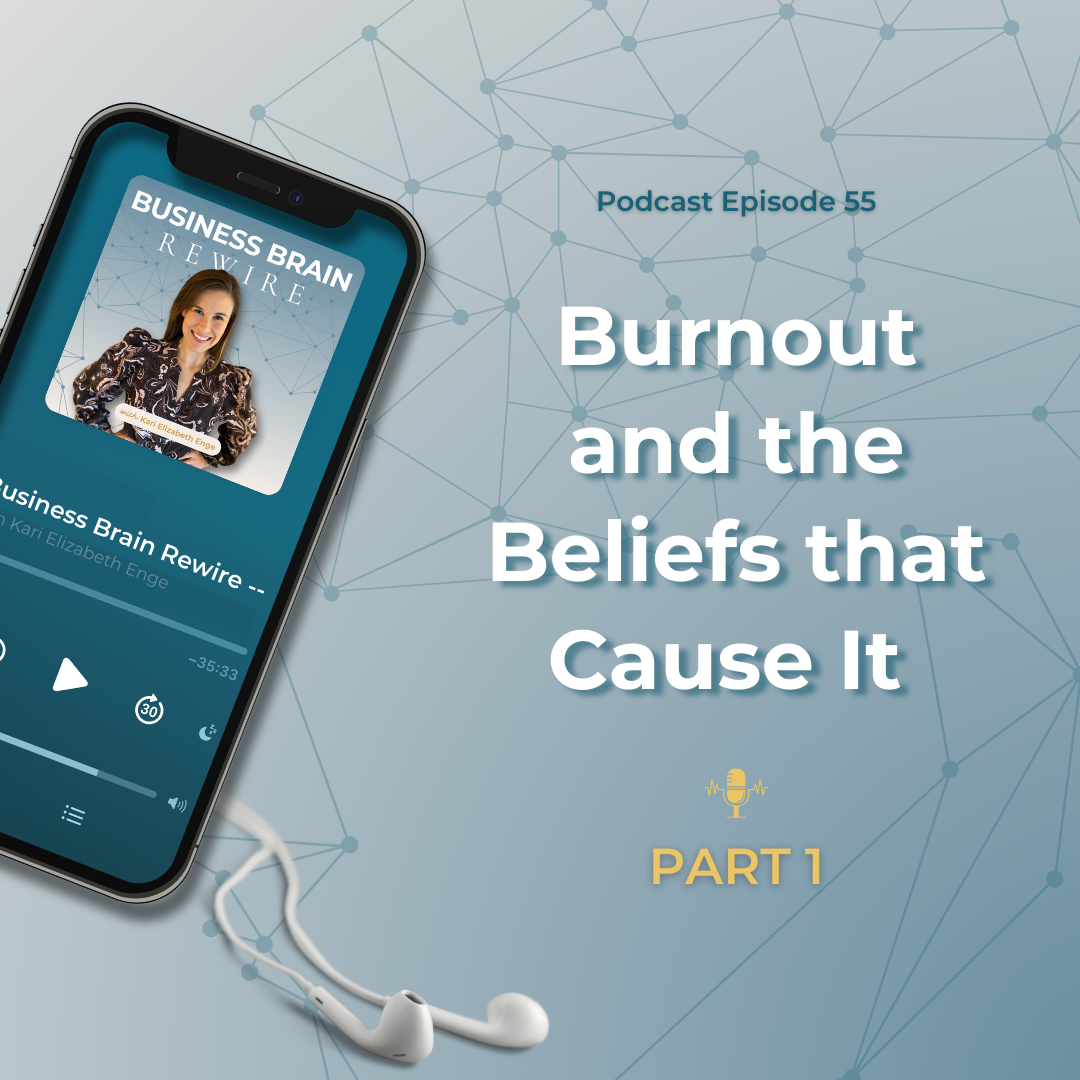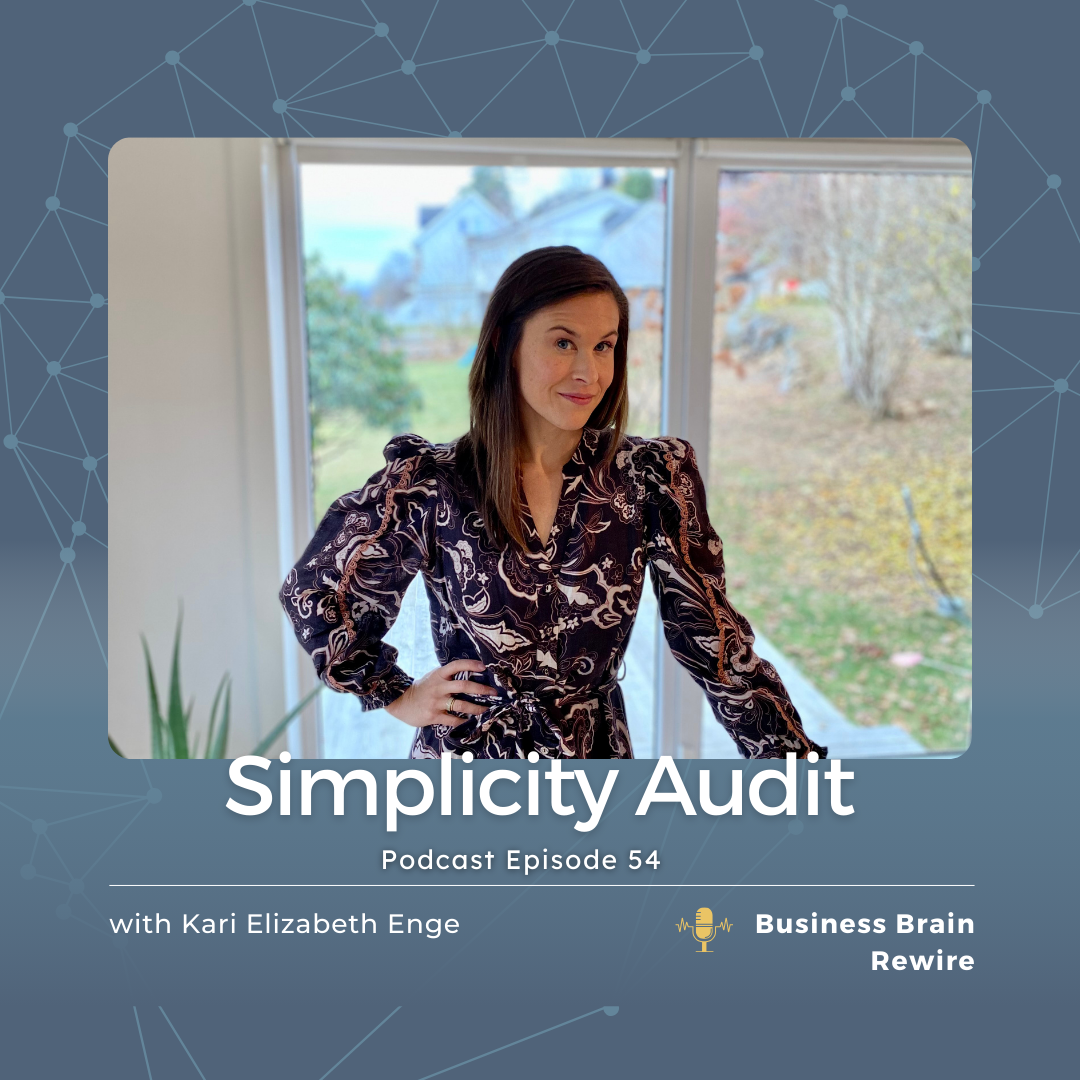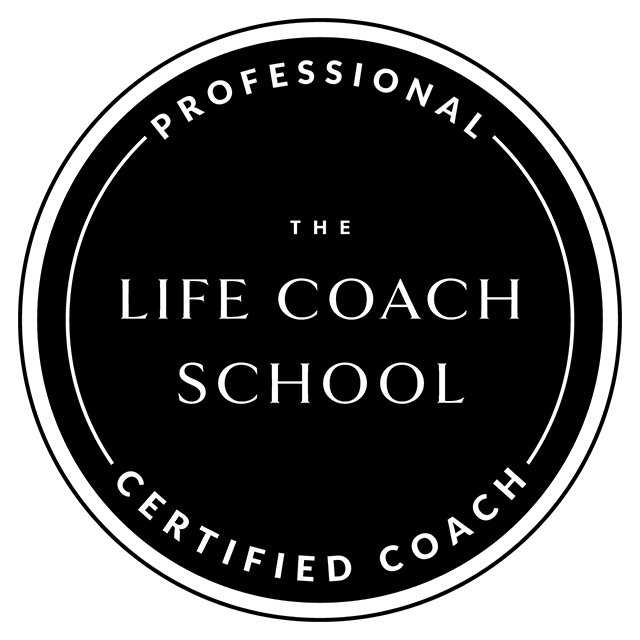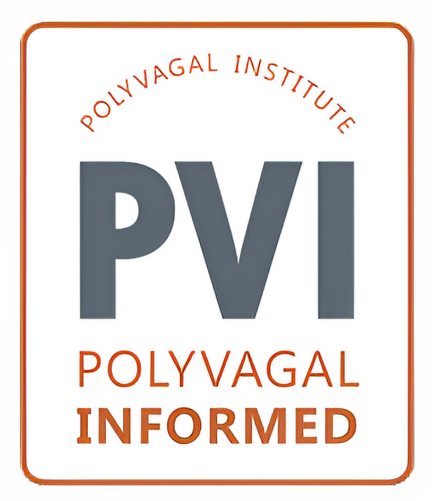When do you know it’s time to leave the success you’ve built… and start a new season?
In this episode, I sit down with Sandra Lopez—an award-winning tech executive turned founder—to talk about the powerful decision to walk away from the known and build something more rooted in personal alignment.
Sandra’s journey isn’t just inspiring—it’s deeply relatable for any founder who’s felt the inner nudge that how they’re working no longer fits who they’re becoming.
She shares how she went from building brands inside Fortune 100 companies to building her own, and what it actually takes to make courageous leaps throughout your founder journey.
This conversation touches something deeper: the truth that hustle alone can’t carry a vision long-term. Sandra opens up about the mindset shifts that supported her transition, why control can quietly kill creativity, and how nervous system regulation became an unexpected cornerstone in how she now leads.
We also explore the subtle but powerful difference between momentum that comes from urgency… and momentum that comes from grounded clarity.
If you’re in a season of shifting, shedding, or stepping into something bigger—this one will speak directly to you. It’s about growing on purpose, not just growing for growth’s sake.
Tune in. Let this episode meet you where you are—and give you permission to become more of who you were meant to be.
In this episode, you’ll learn:
- The moment Sandra knew it was time to transition into her next season of growth
- Why “letting go” and “slowing down” might be the smartest move you make this year
- How to build true and lasting momentum
Mentioned in Today’s Episode:
#1 Sandra Lopez is a visionary tech executive and founder of AMBI Ventures, a company investing in culture-driven businesses while offering fractional CMO and GM services. With leadership roles at Microsoft, Intel, and Adobe, she champions innovation, inclusion, and impact. Learn more via her LinkedIn.
#2 If this episode had you nodding along, thinking yes, this is exactly what I need—then don’t stop here. Let’s take these strategies and turn them into action with a step-by-step framework. Proven science-backed tools. A clear path to growing with more impact AND ease.
Go to dobusinessbetterschool.com/class and I’ll see you at my next LIVE training.
Transcript:
[00:01:49] Sandra is going to open up about the moment she realized control was no longer serving her growth. How she traded urgency for clarity and why that created even more momentum, not less. We’ll talk about nervous system tools and how she regulates to make wiser decisions, and we’re going to talk about slowing down on purpose so you can move your business forward faster. I think there’s something really powerful about the way Sandra approaches leadership. She’s the real deal, guys. So I’m so excited for you to just hear some of her wisdom. That comes from years and years of working at a really high level and how you can apply that to your purpose-driven business. If you are in a season of shifting, questioning, expanding, or just going after your business goal and you want a fresh, new way to look at it, this episode will give you both language and permission to step into that in a brand new way. Let’s get to it.
[00:02:53] Hello, Sandra. Welcome to the show.
[00:02:56] Hello, Kari. I’m glad to be here and sorry it’s late over there, but glad we were able to make it work.
[00:03:02] Yeah. I’ve been looking forward to talking to you for months. So I’m glad we finally found a time to talk even though it’s late at night here, but I’m so looking forward to just picking your brain today and learning how you think, how you approach things and how you lead as a founder and a business woman.
[00:03:22] Thank you. I look forward to sharing. I always like to say, I think we’re always learning and evolving in terms of the type of leaders that we want to be as you learn more through your experiences and take those experiences and think about what aligns to your overall values and your Northstar.
[00:03:41] I have so much to say about the topic that I teach. I was just telling my husband how excited I am to talk to you because, you know, people and now I haven’t in the last, I would say five years. And it’s so important to just get a constant influx of mentorship and advice and just outside perspectives. So that’s what we’re going to do today. I want to kick off first by just having you share just a little bit about your who you are, what you do so everybody can get acquainted before we dive in.
[00:04:14] Great. Thank you, Kari. Well, Sandra Lopez. I’m first generation, Mexican American, born and raised in Silicon Valley, literally the heart of Silicon Valley. I always like to say when I was born, there was more orchards. There weren’t a lot of technologists and that has evolved drastically over the past, you know, four decades. So for me, my career did not start in tech. I actually started in the fashion industry. I had aspirations to be a fashion designer and quickly realized I wasn’t really talented at creative, but I was really great at seeking to understand humans, both for my psychology, sociology, and anthropologist. I quickly pivoted to the world of tech. I knew tech was going to transform how we live and I began my career in the world of marketing. Took various different roles, worked for small, medium, large sized corporations. Then your life has a journey where I was given the opportunity and unbeknownst to me, I realized I had a knack of being a GM and started entirely new businesses from scratch. Just recently about a year ago, I decided like I build businesses for corporations. Why don’t I do that for myself? So I’m taking my superpowers of building new businesses or transforming through go to market to help not only a company, but many companies, that align to my values and my ethos.
[00:05:35] Yeah, I wasn’t planning on asking you this but I just think it’s so fascinating what was that inner dialogue like when you were Like, you know at the pinnacle of your career, you know, you’re very successful and suddenly you’re like, you know what? I think I want to just do something for myself. Well, what was the inner dialogue that helped you to kind of jump in for yourself.
[00:05:55] I think sometimes it wasn’t intentional. It was this moment in my life that I knew I didn’t wanna relocate to a specific company and a specific geography, and I needed to stay in San Francisco. My child who’s 14, she’s amazing. She’s a byproduct of divorce parents, and so I’m grounded in San Francisco until she decides to take root to college, should that be her choice. And I was just asking myself like, what’s next? And I was really curious. It was easy for me to take my background and go to another large corporation in San Francisco. There’s many of ’em. And I think Covid really got many of us to think about what’s our purpose? What’s our intentionality? I read a lot of books and I’m always reminded that the time you drive exponential growth is when you’re least comfortable. So it was a year long journey to get to this space because you were saying goodbye to the big logos that your names were associated with, and that was very uncomfortable for me. Starting from scratch with zero revenue was very uncomfortable for me. While my trade is marketing and building businesses, talking about myself was very uncomfortable for me. And then I just said, eventually one day, like people started to tell me, this may be your path. And I said, I have to try it. Worst case is I can always go back. So I took a bet on myself and I am thriving. It has not been easy. I like to say to many people’s, I’m learning a lot because I’m supporting different industries and all the leadership provides different perspectives. And so I get to be a sponge and take this collective wisdom and see trends and apply that back to my clients. It wasn’t all of a sudden one day I’m like, I’m gonna start my own business. It was a year long journey of self-reflection, curiosity, and the willingness and the courage to be uncomfortable. Especially when comfort is desired, when you’re getting ready to send off your, 14-year-old child to college, which is very expensive in the United States.
[00:08:19] Yeah. Yeah. That leads me to my next question because you might have already touched on some of the things that you’re going to say, but what are your core values? I mean, what are the things that really drive you and ground you as a founder and why do you think those values are so important for business growth?
[00:08:42] I think these have always been my values conditioned and public, probably ingrained by my parents, and I’m so grateful for both my mother and father teaching me the importance of being kind. So how do you translate kindness in a business environment is sometimes being honest and truthful is hard to receive if the other person’s having a difficult message in terms of overall performance. And then I realize that’s the best thing you can do for the person. The question is how do you deliver the message? So oftentimes the business community, people get passive aggressive and don’t wanna have those hard conversations. I think in my point of view is kindness and delivering hard and celebrating great news is important. So that’s one value of mine.
[00:09:36] The other value of mine is humanity. I learned this over time, it wasn’t something that I applied early in my career. Early in my career, albeit my parents also told me to separate work life and personal life. When I had my daughter, I realized it was really hard to be a working parent and I couldn’t shut that off when I came into the office or when I was going through a divorce, and that was a very difficult po period of my life. I couldn’t just show up and be this energetic person. And so for me was really learning how to comprehend that when you come into the office. You’re also bringing all the other things that are happening outside of nine to five because we really don’t work from nine to five, but in general, like you’re bringing those elements. And so, I began to really tap into leaders that embrace humanity. What I notice is by doing that , your team members, they trust you more. You’re like, oh, you’re human. You’re not a robot, you’re not you know, profits at all cost. And in that way you get the best out of your people. So humanity is one of those values that are key drivers.
[00:10:59] Then the other thing that is a value of mine is that we are hired for our talent. We are hired for our intellect. There’s thousands and millions of people and billions of people out there that are smart, intellectual, and really thinking about what bring, what makes you different so that you can deliver the outcomes for the company. And that goes back to my value of why try to be like everybody else when you were born to be different. And really for you as a leader understand your unique value proposition, and equally for you as a leader to work with your leadership team and your teammates to understand what is their superpower and how do you leverage that to the advantage of the company so that you can deliver meaningful impact. So those are the things that just drive me and I have to tell you like. Even as I grow and evolve, I think those will be foundational and some like values will come in and out potentially. So I think we’re all stressed right now and like fun to me is really important. So how often do you use the word fun in your day-to-day business? Rarely hear it, but I use it frequently.
[00:12:14] Let’s have fun, let’s enjoy, let’s celebrate. In a world where we just got outta Covid and there’s so many macro conditions that are happening and the job of a CEO is very stressful. I think injecting a little bit fun is important. And so that to me is a value that I’m starting to bring in at this current phase of the business community.
[00:12:36] Yeah, yeah, me too. I feel like fun was not on my radar maybe five years ago and now it’s definitely like a major priority and I think can really help founders move the needle faster when they know how to tap into fun.
[00:12:54] I agree.
[00:12:55] Yeah, exactly. I was talking to a founder recently and she was saying one of her values was to go fast. We have been coaching for several months and I’ve been working with her on this idea that, you know, adrenaline, when you’re not having fun is the definition of fight or flight. You don’t necessarily. Need to go fast if it’s fight or flight energy, but if you like that fast paced, dynamic environment, the healthy, more innovative way to do it is to tap into the play state. And I think that that’s just a great way to maybe think about it, right? Like where is my adrenaline? Where’s my momentum coming from? Is it coming from fight or flight or is it coming from the play state?
[00:13:39] Yeah, I mean, you see it in teams, like I always like to reference the sports industry because when the team members are having fun and they’re all energized, it’s like kinetic movement. You get the adrenaline going. And I think it’s the same applies to the business community. You see when everybody’s having fun and ideating and laughing, what comes out of that versus, the approach of looking at a problem and just being negative and how much that weighs you down. Some people just shut down and don’t want, doesn’t, they don’t even wanna participate in the conversation. I love that you use the play state because when we were kids again, we lost the curiosity or the wild ideas. And when you play and you just don’t box yourself in, that’s where I think the magical moments happen. So I love the word play as a reference in terms of when you leverage that adrenaline, how do you leverage that to create and imagine and dream and think big and you know, have your BHAG moment, which is, you know, your big, hairy, audacious goals. People can rally behind that like, wow, that is so ambitious. And you start to mobilize your teams towards that big hairy auditious goal.
[00:15:01] Absolutely. One of the things we were chatting about before is, the idea of letting go. Letting go control and how that can actually be very strategic. So can you talk more about that?
[00:15:14] I think letting go is really hard, especially when some of us are type A control. And I have to tell you, when I went from an IC to a manager, this is years and years ago, that was a very difficult moment and I’m so grateful for the company that I was in service to at that time, which was Intel, gave me an executive coach, Kari, like you, to help me through that transition. Because we are also set in our ways in terms of how to do things and we have to allow permission for your team members to do it their way, as long as we all reach at the outcome, it’s maybe we go through a different journey, but we get to the end, same result. And so through that executive coach, she taught me the importance of the check-ins. Are we on the same page? Do we see the problem? Can we articulate the problem correctly, in allowing people to drive towards a solution in the way that they do it, versus in the way that I do it, or, you know, I realize that being a micromanager in itself, for many, they believe, well, that is a translation of you don’t trust me. Always checking in, obviously they have a very certain way of doing it, so I must do it their way. And then over the years, what I learned is when you let go of control and you let your team members own and have accountability. Your business grows faster, flourishes faster and you build a high performing team. And it was a difficult transition of that individual contributor to a manager. And I am so forever grateful for having that executive coach to get you through that. Do I still sometimes have these desires to control? Less so now because I just believe in the power of the collective.
[00:17:12] So what you’re saying is the way you are able to let go of control is by trusting the team around you.
[00:17:19] Yeah, yeah. And to our earlier conversation, the notion of also recognizing there are things that you cannot control. If you can’t control a current situation, focus on what you can control. As an example, if happening real time in the business dynamic, if there are, and it affects the technology industry drastically, if there will be tariffs that are placed by China, for example, it affects the supply chain of many technology companies. So the question is, you can’t control the tariffs, what can you control so that you do not burden, ideally, if this is a company of your values, an increase in price for your consumers. And so you start to look at all the other variables of where can you cut costs to maintain the margins cause you also need to report to your shareholder and shareholder value. Just looking at other variables that you can maintain, given that you can’t control the tariffs that are about to be applied to your company.
[00:18:20] Yeah. Yeah. So just troubleshooting with that kind of creative energy of like, we’ll figure it out. Let’s just focus on what we can control.
[00:18:30] Yeah, and I think that’s comment around play. When that happens, it’s easy to bring in. Let’s say you have a war room where you started strategizing idea like, okay, we are, this is gonna happen to our business. We can’t control that. What are ways that we could help address the impact to our business? We often bring the same players in a room. What I try to do is, is there somebody that we normally don’t invite to the room that we should, that normally is not part of these conversations, because they may see an angle that we just simply don’t see anymore because we’re in the day in and day out. So this is what I tell people. The power and diversity of thought. An agency called IDEO has done this extremely well, where they look at a problem and they bring people from totally entire different industries because you’re okay to ask what maybe somebody would think is the stupidest question, but it may lead to the best solution of solving that problem. So I always tell people look around the room and maybe you would benefit from having somebody that typically is not in that meeting to either play advocate or to provide another idea. ’cause they’re not so fixated in their way or look at history like in the context of saying, well, we’ve done that before, hasn’t worked. Or asking the simplest question that may result into a game changing idea.
[00:19:53] You know, while you were talking, it just made me think about another value that I think is important for this, which is patience or maybe presence, because what you’re describing requires you to slow down, right? Like when you’re, when you are listening to the collective and you’re thinking about who else we could ask and you want people’s perspective, you can’t be running full speed ahead. You know, that speed requires you to just go with what’s in your own brain and go with like the rigid plan you have and so I think what you’re describing is also that patience.
[00:20:30] Yeah, and I think Kari, to your point, if you slow down, you move faster. As an example, I was just telling, it was maybe like a couple months ago, I was explaining an approach to an idea. If you have a problem and you wanna ideate and talk to a bunch of people and think about multiple solutions, some people may think it slows you down. But if you imagine that if you execute, if you didn’t spend some time of thinking about all the strategic options and you picked one because you’re like, this is the best solution, and you apply it and it has some negative implications and you don’t get the ROI, then you have to come up with yet another option to address the problem. So the power of being patient and allowing space to create. In reality also allows you to move fast because you’re thinking about all the scenarios before enlisting a solution that may possibly go wrong or you’re overlooking a solution that would have yield greater ROI or minimized an opportunity cost.
[00:21:37] Let’s speak to the startup founder for just a second, cause I’m really curious on your thoughts on this. A lot of startup founders, they will get stuck in indecision or analysis paralysis, or they’ll start second guessing themselves where they’re just kind of like spinning around of what’s the right way here. What’s the difference between that and what you’re saying, which is like strategically slowing down and looking at all the angles.
[00:22:05] I would say from a founder perspective, you can get stuck in, there’s two like the analysis paralysis and you’re so fixated on your vision that this is the only way, versus allowing to think, especially in a startup, I always feel like get as many data point data points as you can and then go put it in the market cause the market’s gonna tell you and it’s gonna give you real time feedback. What I tell people is, you slow down and you get input from people on your thesis or your idea, or right now you’re just referencing a very specific pricing model that SaaS base is applied, but maybe there’s a different type of pricing strategy. Go get that and then test it, with a, you know, pre-alpha group. Don’t get so fixated on what you think people need because the people give you market feedback on what it is and be willing to pivot. What I have seen is, those entrepreneurs that have a vision to a North Star and are open to feedback and are open to various inputs, are the ones that tend to be most successful.
[00:23:21] Yeah, tell me more about that mindset that you have.
[00:23:25] The entrepreneurial mindset for me is it goes back to being a kid again. I’m gonna, you know, build a castle, I’m gonna build this, and you ask questions and you look at why and why is this built this way? Then you ask your mother and father for some guidance and input and, you know, help building the sandcastle, whatever it may be. And I think if we bring the childlike mentality in these startups, it allows you to flourish, versus being like so structured and so trying to move so fast. I know it’s hard because you’re looking at your bank account and you’re living on your last, a thousand dollars and you’ve gotta pay the bills. Know that if you come from the mindset of abundance and your company’s here to do good, the money will come.
[00:24:09] Yeah and that takes slowing down. You cannot do that exercise when you’re just ramped up, right? Like none of these things are possible when you’re doing that.
[00:24:18] I mean my journey started five years ago and it was, it started from a personal perspective. I felt like I needed to do internal work and so I went to Tulum, and spent a lot of time of my inner energy, wounds that happened when I was a child, which actually would play out in corporate America unbeknownst to me. Your mind is very powerful and your gut’s very powerful. And to listen and tune in and be quiet and you know, give yourself the space to seek the answers within yourself. There have been times in my new business that I sat there and like hit pause and say, am I in the right direction? Give me signs and my intuition will tell me kind of directionally where I need to go. Leveraging your own energy as your North Star is very, very important. But we’ve been conditioned to go fast, right? I remember in my first phase of my career, I feel like I have three phases of my career in terms of my mental maturity. My first phase I was conditioned to sleep is for the weak. If you sleep a lot, you sleep for seven hours or six hours, you’re not gonna cut it in business. Now I have a philosophy of my body needs seven hours of sleep. And with that seven hours of sleep, I’m much more focused. I’m much more productive. I think learning about how can you build a better you and how can you be a high performer? It’s not only about excelling in intellectually, it’s also about your physical mental soul. Because we are all energy and there’s cause and effect and there’s kinetic movement. Really allowing time to leverage your vessel so that your vessel can help guide your business is important, they’re interdependent.
[00:26:18] We were talking about this interview, and you mentioned that you used nervous system tools, so I’m curious how you like to regulate your nervous system and what works for you personally.
[00:26:31] There’s one thing that has become, every morning I have a practice. It called the Miracle Morning, I think the acronym’s, savers. But I wake up, I used to look at my phone and all of my emails and I think that would just give me an anxiety attack and an unbeknownst to me. But that was you wake up, look at your phone, and all of a sudden your day starts and you have no transition. So sitting there in silence and trying not to think of anything. So I use TSMC as a meditation practice. And then I move into visualization. What do I want my world to look like? What does it smell like? What does it look like? What does it feel like? Because I wanna co-create that with the universe. Then I eventually get up. I exercise. I do my best to read something that is contrary to a point of view that I would normally agree with, so I can seek to learn and understand a different point of view. Then I journal. I can tell you the moments I don’t do saviors, and I started it when it was during COVID, to get me through it. I feel it. Anxiety increases, my nervous system increases. I do that and then I also spend a lot of time in the physical and soul kind of therapy of my body. Those are tools that I use. And then I always try to learn from people about your childhood and the trauma that I’ve had or ancestral trauma and learning about the scientific aspects of like family constellation. Trying to resolve those issues unbeknownst to me that could have existed in my subconscious. And when you do that and you try to resolve those issues, it appears in your in your business life because you have one life. It’s your business in your professional. Things that have happened in your professional, we’ll come in into your business life. There could be a manager that triggers you, similar to maybe a partner of yours. How do you regulate that? How do you take a step back and how do you listen to yourself and leverage your masculine and feminine energy to get through that? So I always try to say like I’m trying to master the power of living a blissful life. And blissful, I tell people, it doesn’t mean that you’re always happy. Blissful is, it’s okay to feel sad. It’s okay to cry. It’s so okay to feel like, you know, maybe your world has fallen apart, and how do you create space for that and think about the best way to move forward.
[00:29:11] Mm hmm. Yeah. Yeah, absolutely. Thank you so much for sharing that because, you know, you have quite a few accolades. I think you’ve been named top hundred women in technology, I believe most powerful woman in tech. You’re saying you’re doing all of these nervous system things every morning and that they make such a big difference. I think that it’s so important for the founders listening to take that seriously, instead of brushing it to the side because I feel like most of them are like, yeah, yeah, yeah I probably do need to do that, but they don’t make it a priority. Probably because they don’t feel like it moves the needle. What would you say to that?
[00:29:53] I think the majority, you can ask anybody in my network, both close family, friends and business colleagues, that I have become a radically different person because of it. I’ve been more successful. Successful in my terms, is loving what I do professionally, being the mom that I need to be for my daughter, having my tribe of cheerleaders and friends that help us move forward and level up. Ask anybody that’s done this work and they are absolutely in the trajectory of realizing the success that they want to realize. I think success is for everybody else. I always tell people, it’s worked for me. It may not necessarily work for you. And those that I’ve seen spend time are pretty happy people. They’re very happy. You could have the best company and you can go IPO, or you can get acquired and you can become a billionaire. If you’re not happy and you’re not at peace with yourself, what a horrible life to live, you know?
[00:31:04] Right. It’s something I am really grateful for that I got to do at a very early age. So I don’t know if you know this, but my first job out of college was an intern on a private mega yacht. So I ended up joining that company and growing with them for several years. But for two of those years, I was basically living on board full time with 200 billionaires. My first position was after an intern was the restaurant hostess cause I was like, I just want to stay on board. I just want to travel around the world. And so the restaurant hostess, she ran away from the ship one day. She wanted to just escape with her, you know, her passport or whatever. They were like, we don’t have a restaurant hostess. Can you do it? And I was like, yeah, sure. So my parents were like, what are you doing? It was so fascinating to just spend time watching these very, highly successful people, and to see the different ways that they treated themselves and treated other people. I think it was my first crash course in what not to do. There were a couple of them, I would say the most successful ones, the ones with the most influence had done this work. We’re looking into their childhood, we’re into self development, we’re learning about their health or taking care of themselves. So I started to like gravitate toward that and pay attention to that. And then compare it to the other, just very tunnel vision, accomplishment driven, people don’t matter mindset. Don’t know if I’ve told that story on the podcast before, but it was a big influence on how I do things. I think that’s what you’re describing. That it’s just so much more important to have a well rounded view of yourself and to do that self improvement, I guess we can call it as soon as you can.
[00:32:58] Yeah, a hundred percent. I mean, it’s kind of like having empathy for yourself. I heard last year a very prominent CEO of a big manufacturing company. He was, you know, he grew up into an affluent family and he said, I was exposed to how unhappy many of ’em were. ’cause they were all, and he said, I committed to myself not doing that. He seems, and I, ’cause I don’t know him personally, a very empathetic leader. As an example, he chose under a code name, to go into the manufacturing plant. He didn’t want people to know who he really was because then they would treat him differently to understand what it feels like to be in the manufacturing plant. And that to me was illustrative of his understanding of, one, the privilege that he was in and also observing that money or a successful company will not always make you happy. And so how do you live? How do you get to a life of peace, symbolists. And so he seems to me, I’m sure he does a lot of self work. It seems apparent and just being empathetic.
[00:34:07] Yeah, I think we should add that to the values list for today.
[00:34:11] Yes, yes, yes, yes. We will add it to the values list. Yes. Empathy.
[00:34:17] Yeah. Let’s talk for a few minutes. I know we’re running short on time. I feel like I could talk to you for hours, but I wanted to hear your thoughts about mentorship because you mentor the next generation of women, especially Latino and Hispanic executives. So why are you so passionate about mentorship?
[00:34:36] I always tell people that when I entered the business world, mentorship and sponsorship did not exist. That vocabulary was non-existent. I believe there was many moments in my time that I could only wish I had somebody to talk to. And when I became like a senior director, in my career, I just felt that providing access to me and having people just ask questions and be their advisor. So mentorship is advising and sponsorship is being an advocate for somebody, was important because I wanted to make sure that one of my purposes is for people not to give up. Don’t give up because the pressures of corporate America, if you believe corporate America is where you need to be. Or you know, don’t give up a business because if you believe you need to be a business, but oftentimes you get, it’s so exhausting that you just exit stage left. If I can be one person that provides advice of how to navigate a complicated solution and they get through it, that means more to me than a paycheck. I feel that’s what I’m really tended to be here on this planet, is to help guide and advise and enable the next generation to rise through the ranks. I would gladly do that. In fact, literally right before this podcast, somebody’s going through something in their particular business, they’re going through a C-level executive change. I was on a call with her last week and I said: Hey, if you ever want me to help mentor you in terms of what it means as a C-level suite changes and how you can prepare and navigate these changes, it was the first time she was going through it. I’m happy to have a one to live with you. And so, that to me is important. And then sponsorship, I saw the power. I was sponsored by Chris Min at Intel and she advocated for me and she got me to understand what it means to be an executive for that company. It was a three year journey and, you know, some tough love. I will not be here if it wasn’t for her. So going to the C-suite and the CEO saying, I believe Sandra’s ready to be a vice president, a corporate vice president, you need to have those advocates in the room because if you don’t, nobody’s gonna recommend you for that next level of leadership position. And I’m really into Ruth Bader Ginsburg when she asked , when would she be happy around the secrete court justices and somebody’s like, when we have 50% of females, and she said no, when they’re all females. Perspective is very similar to the CEO of Teron, who’s the CEO of Health Beauty cosmetics. He’s very vocal about this. I just believe that every company has a responsibility to reflect consumer. So that means gender diversity, diversity and gender, diversity and ethnicity, diversity and disabilities. So whatever I can do to make sure that we reflect society the best possibly we can, that means we will serve our society in a way that helps us all move forward.
[00:37:41] Yeah, yeah, that’s so beautiful. I wish I would have had you when I went through a C suite change when I was in corporate America. I was just thinking, you know what, I didn’t have anyone. Maybe that was my problem. I think it would be great as we wrap up for us to talk a little bit about how for founders specifically can build their support system, right? Like when we are in corporate America, we have access to sometimes these advocates or sponsorships or executive coaches, but then when we start businesses, I think it’s easy to forget that you need that structure around you or to feel like the funds are tight. So you don’t even allocate money to that. How can a founder navigate that and build a support system around themselves?
[00:38:25] So I would say three things. Have your board of directors, board of advisors. You’d be surprising how some people are gonna wanna help without expecting equity or getting paid. So you just have to ask and look at what type of advisor, board of directors you need for your company for it to move forward. So that’s one. And most people do and some people say they wanna do it, but never actually follow through. That’s an easy one because you have people supporting your business and when they’re involved in your journey, they’re gonna want you to be successful. So they’ll do everything they possibly can. Two, surround yourself with other founders. So, when I built my fractional services business, nobody told me to do this, but I’m like, okay, I’m just gonna create a Slack channel. As I meet fractional CMOs, fractional CFOs, they can all be part of my Slack channel and we’re going to be there to support each other. That was last year, built a Slack channel and now for this year, I’m like the third Thursday of every month, fractionals, if you wanna tune in, we’re gonna get together, share what we’re learning, their highs and lows, how we can help. So every month, I ask everybody, how can we help you? What is that one help that you need? We know what that person needs to kind of get through the next hump. Then the last thing I would say is just have your cheerleaders. Like I have two friends I call every single day. How’s it going? What’s going on? Are you okay? Can I like, you know, is life great? Did you close that deal? Yeah, like life without cheerleaders, it has changed. I didn’t have cheerleaders before Covid, and now I have two people every single day we talk, we check in on each other. One is in corporate, one’s a startup, and that that helps.
[00:40:16] Yeah. Thank you so much. I feel like there’s just so much wisdom in this conversation. I’m going to have to go back and listen to all of the different things that you’ve said. Yeah, you’ve just brought so much perspective to how to do the journey better, I think. So thank you so much for joining me today. Where can people go to learn more about you and your work?
[00:40:36] Just got LinkedIn. I always tell people, LinkedIn’s the easiest thing. Go find me on LinkedIn. I’m there. I speak about my business. I speak about, I think we talked about values and how we kicked off this conversation, my values are reflected in my belief systems and always why it’s important and can follow me there. I’m always happy to have a one-to-one.
[00:40:55] That’s great. Thank you so much, Sandra. We’ll talk to you soon.
[00:40:58] Thank you so much.
[00:40:59] Thanks for listening to this episode of Business Brain Rewire. If you wanna learn more about my work, come visit me at do business better school.com. See you next week.
Podcast: Play in new window | Download
